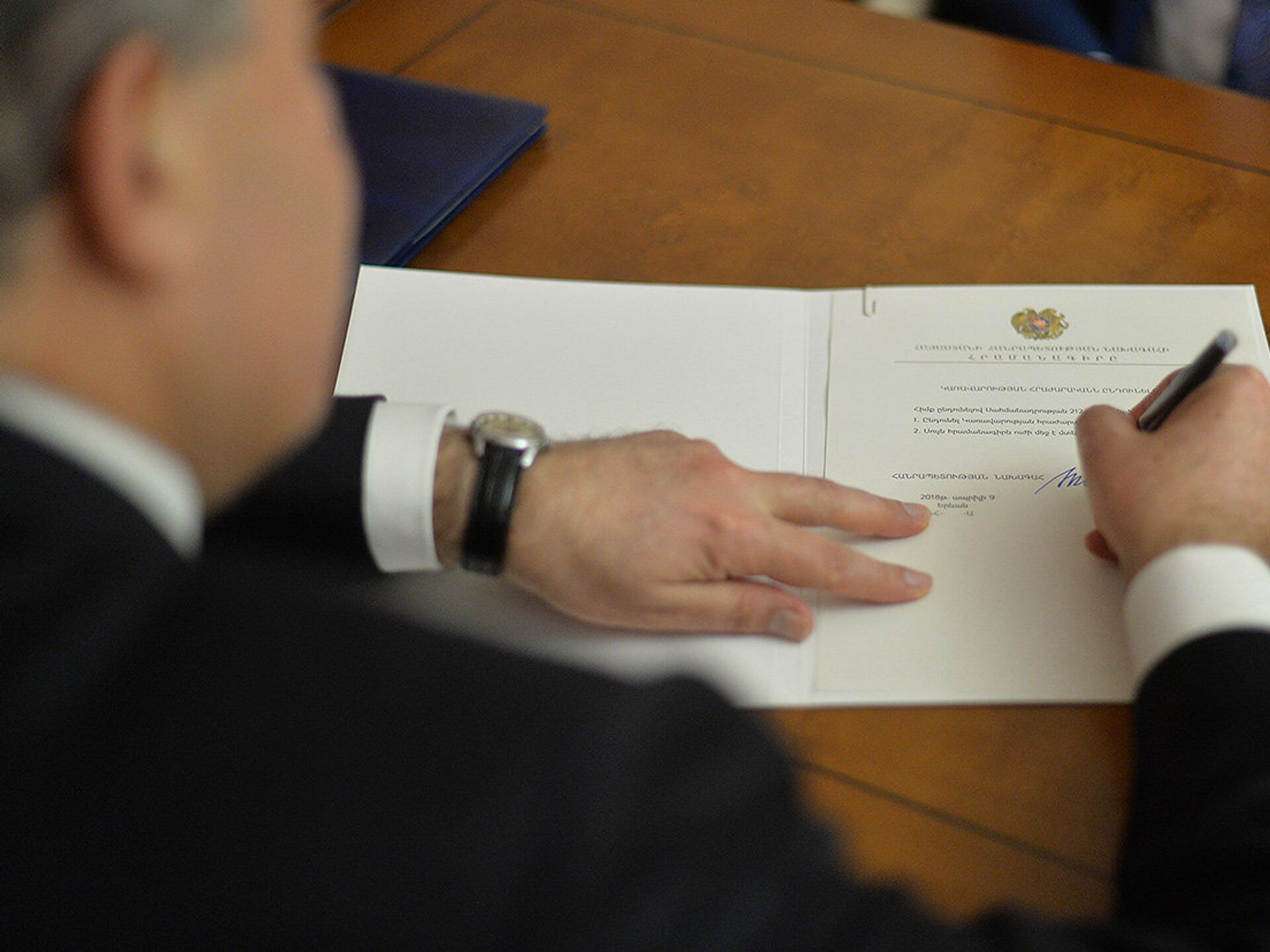“Another attempt to reproduce power?” - Armenia to carry out more сonstitutional reforms
PM Pashinyan pledged more reforms to Constitution
On July 5, Armenia celebrates Constitution Day. The main law of the country was adopted in 1995, and it has already been amended twice – in 2005 and 2015. In 2018, according to the constitutional changes adopted in the 2015 referendum, Armenia finally switched to a parliamentary form of government.
The current authorities of the country have once again initiated the process of reforming the constitution, which is planned to be completed by 2023. A separate Council and a professional commission have been set up to prepare the reform project. Until June next year, they must submit their proposals to the Prime Minister’s office. If the draft contains a clause on changing the form of government by the state, then a referendum will be held on this issue again.
- Two opposition MPs lost their positions in Armenian Parliament amid ‘failure to fulfil obligations’
- Anna Vardapetyan became Armenia’s first female Prosecutor General
- Op-ed: how Armenian reforms correspond to EU candidate status
“Parliamentary form of government must be preserved”
On the Constitution Day, the Prime Minister of Armenia delivered a congratulatory message. Referring to the constitutional reform project, Nikol Pashinyan stressed that “Armenia must preserve the parliamentary form of government.”
He substantiated his position by recalling the events of 2021, the deep political crisis that occurred in Armenia after the defeat in the Karabakh war.
Back then, the opposition demanded the resignation of the prime minister, who signed the ceasefire agreement and “surrendered the territories of Nagorno-Karabakh.” To overcome the crisis, early parliamentary elections were held in Armenia, and the political force led by Pashinyan again received a vote of confidence.
According to Pashinyan, these events proved that the parliamentary form of government provides more effective mechanisms, such as:
- crisis management;
- involvement of society in the solution of political issues.
“Audit of the current constitution”
In January 2022, the composition of the council, which will prepare constitutional reforms, was approved. It included only the MPs of the ruling Civil Contract faction. Both opposition factions boycotted the initiative and did not nominate candidates. The Council is chaired by Minister of Justice Karen Andreasyan.
The Council for Constitutional Reforms includes Armenia’s representative to the European Court, two deputies from the ruling power, including the head of the parliamentary commission on legal issues, a human rights defender, and a member of the Supreme Judicial Council. Representatives of civil society – three human rights activists – were also involved in the work of the Council on a competitive basis.
The Council, in turn, formed a professional commission, which included a group of scientists. They will be engaged in the development of a new draft constitution.
“The challenge before us is to, so to speak, audit the current constitution after four years of work and see what room there is for improvement”, the prime minister said.
According to Pashinyan, this initiative does not mean that the constitution will necessarily be amended.
“The time for a political decision will come”, the prime minister said after the end of the commission’s work.
A similar commission to develop the concept of constitutional changes was also created in 2020. The members of that commission were unanimous that the question of changing the form of government by the state was not subject to discussion. According to the official version, the work of the previous commission failed due to the coronavirus pandemic and the war in Nagorno-Karabakh.
Human rights activists who are members of the reform council do not raise the issue of changing the country’s governance system, but emphasize that the current constitution needs to be reformed.
In particular, human rights activist Artur Sakunts believes: “The Constitution does not provide for the principle of separation of powers and mutual deterrence and does not guarantee parliamentary control over the executive branch”.
“Don’t judge everything by your own standards”
The opposition believes that the goal of the Pashinyan government is the reproduction of power.
In response, Minister of Justice Karen Andreasyan stated that the aim of the constitutional amendments is to “balance the branches of power”.
As for the extension of Nikol Pashinyan’s term, according to the minister, the current constitution provides for unlimited opportunities for his re-election as prime minister.
“It is not worth measuring each initiative by its own standards and by previous experience,” Karen Andreasyan emphasized.
The minister alludes to the constitutional referendum initiated by the previous authorities, which took place in 2015. As a result, Armenia switched to a parliamentary form of government. Then the opposition said that the goal of the reforms was to reproduce the power of President Serzh Sargsyan.
His second presidential term was coming to an end, and Serzh Sargsyan could no longer take the post of head of state. And after changing the system of government, he could become prime minister, that is, again take the main leadership position in the country.
Is Pashinyan “for” or “against” changing the form of government?
Oppositionist Nikol Pashinyan once called the issue of changing the form of government a “false agenda.” After the Velvet Revolution of 2018 and coming to power, the prime minister managed to make conflicting statements on this topic.
For example, in March 2021, Pashinyan stated that the current constitution “creates many crisis risks” and did not rule out the possibility of a return to a semi-presidential system of government and that this issue would be put to a referendum.
A few months later, in his July 5 address, the Prime Minister stated that “the principle should be guided by the principle of looking before leaping”. At a press conference at the end of the year, the prime minister announced that he was in favor of a parliamentary form of government.





















